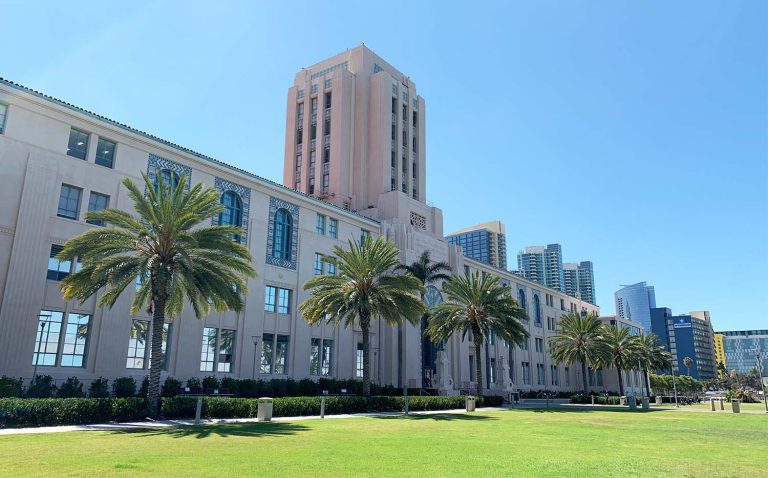San Diego County Behavioral Health Services has spent the last year conducting extensive planning and training to prepare for the biggest update to California’s civil detention and guardianship laws in more than 50 years.
Updates are required by State Senate Bill 43 (SB-43) which took effect on January 1, 2025. Now, more people in San Diego needing help for behavioral health issues may be involuntarily transported for evaluation, treatment and possible conservatorship.
The law significantly changes the legal definition of “severe disability” that can be used to assess the condition of a person with a behavioral illness. It was signed by California Governor Gavin Newsom on October 10, 2023.
Previous state law allowed for civil detention, where mental health issues are suspected, when individuals are determined to be:
- a danger to oneself,
- a danger to others, or
- severely disabled because they cannot find food, shelter or clothing.
Under the new law, severe disability is redefined to include not only people unable to feed, house and clothe themselves, but also those who cannot ensure their safety or receive necessary medical care. Additionally, severe disability may be determined to be the result of mental illness or substance use disorder as a stand-alone condition.
San Francisco and San Luis Obispo were the first in January 2024 to agree to follow SB-43. San Diego County chose to postpone for a year to allow for a major training effort with regional partners. Most California counties have decided to begin enforcing SB-43 in January 2026.
County Behavioral Health Services has organized an extensive planning and training effort over the past year to prepare locally, involving community members, hospital emergency department staff, regional leaders of law enforcement, members of the harm reduction community, attorneys, and others.
Law enforcement officers representing all 18 cities and the county sheriff’s office completed SB-43 trainings. The training was led by the Jewish Family Service Patient Advocacy program.
“I can’t say enough about how all stakeholders have come together to ensure we correctly and compassionately implement this new law to help some of our most vulnerable residents,” said Luke Bergmann, Director of Services. county behavioral health office. “On the county side, we stand ready to help with our crisis stabilization units and substance abuse treatment providers. This will require a community-wide effort and it will be a learning process. I am confident that the many stakeholders are ready to help those affected and address the challenges of being one of the first to comply with the law, just as we did last year with the CARE Act.
This new definition of “severely disabled” applies to the three main processes established in the previous law:
- Assessment, evaluation and intervention or crisis placement for people in police custody 5150, an involuntary psychiatric custody that can last up to 72 hours
- If necessary and duly authorized, the period of intensive treatment for severe disability may be extended up to two periods of 30 days each.
- A conservatory lasting up to one year, and renewable, for ongoing behavioral health treatment and support, subject to a court order.
County Behavioral Health Services estimates an increase of about 1,500 72-hour detentions for involuntary treatment in past years with the SB-43 changes. The actual number will depend on actions taken by law enforcement, doctors and behavioral health clinicians.
Individuals detained under a 5150 involuntary treatment detention are transported by peace officers or mobile crisis response teams to emergency services or crisis stabilization units. As soon as they arrive, they are assessed and receive care adapted to their situation. A person can be released at any time if they no longer meet the criteria for involuntary treatment or do not accept voluntary treatment, which ends the detention.
Detailed information about SB-43 and its rollout in San Diego County is publicly available online at: website updated regularly by San Diego County Behavioral Health Services.


